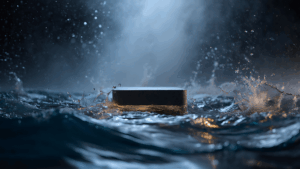You may think that we have always reused our water. After all, it’s been in circulation for millions of years making it likely that the water you’re about to take a sip from is the same water that was once drunk by dinosaurs. In this context, water reuse means treating wastewater and reusing it immediately, rather than releasing it into the environment first. In this way, reusing and recycling wastewater for both potable and non-potable use can have huge environmental benefits. It decreases water abstraction, the amount of water extracted from our rivers, and aquifers; as well as decreasing the amount of wastewater released back into the environment, helping to prevent water stress.
Water reuse is increasingly seen as an important way of ensuring water supplies, but there has previously been public resistance to the idea of wastewater recycling. However, a recent survey carried out by Cranfield University found that public opinion is now more accepting of the process than previously thought. After questioning 2,500 people in the UK, Netherlands and Spain, it was found that the majority of respondents supported, or strongly supported the use of recycled water for drinking.
Public support has always been essential when it comes to large water reuse projects. Previous studies had shown the power of the media in influencing public opinion and altering perceptions of risk of water reuse. Examples of the media encouraging negative perceptions include using emotive phrases such as ‘toilet to tap’, which builds resistance to the installation of water reuse plants.
Why do we need water reuse?
According to Water Reuse Europe the only area of the UK that doesn’t experience some form of water stress is Dumfries and Galloway. Most areas experience low to moderate water stress, but the South East of England and areas of the North East have extreme water stress. And this will only get worse as the country becomes hotter and drier as a result of climate change.
Therefore, we need to find water efficient methods of satisfying the thirst of business, industry, farming, and the growing population. The less water we abstract from the environment, the less stress it will be under, and the more water will be available for humans and nature alike. Which is why the change in public perception towards reusing wastewater as potable water is such a positive step forward.
How businesses can reuse water
As well as reducing water usage, and finding alternative water sources, businesses can implement water reuse measures to help mitigate environmental water stress. Some examples of how water can be reused include:
- Harvest rainwater for cleaning purposes
- Re-condition and treat water to be used in other processes
- Install grey water systems
Castle Water can help with your business water efficiency strategy. Our variety of business water services are tailored to your water and wastewater requirements – helping to achieve your business sustainability goals, access leading industry advice, or simply save money on your water bill.
Book a water audit to identify where your business can reduce and reuse water. Alternatively, our free online water efficiency resources offer practical water saving measures and helpful advice. If you would like to see more about our services such as business wastewater services, click here.
The quickest way to save money on your water bills is to switch business water supplier. As the UK’s largest independent water retailer, with more than 11,000 5-star Trustpilot reviews, we make it easy for you to manage your business water and wastewater services.



